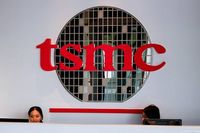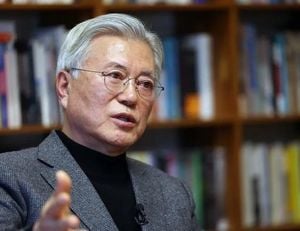ASML Holding NV, the world’s largest supplier of semiconductor manufacturing equipment, has revealed a disappointing start to 2025, with order bookings falling short of analysts’ expectations. On April 16, 2025, the Dutch company reported net bookings of €3.94 billion ($4.47 billion) for the first quarter, significantly below the anticipated €4.82 billion, according to Bloomberg data.
This shortfall comes amid growing concerns regarding the impact of recent tariff announcements on the semiconductor industry. ASML's Chief Executive Officer, Christophe Fouquet, expressed apprehension about the uncertainty these tariffs are introducing into the market. "However, the recent tariff announcements have increased uncertainty in the macro environment," he stated, highlighting the challenges the company faces as it looks ahead.
Despite the cautious outlook, Fouquet remains optimistic about the growth potential for both 2025 and 2026. His discussions with customers suggest a belief in recovery and expansion in the coming years. "Our conversations with customers support our expectations that 2025 and 2026 will be growth years," he noted.
ASML's bookings have been closely monitored, as they are considered a key indicator of the health of the semiconductor market. The company’s current figures indicate a decline in demand, a sentiment echoed across the industry. The ongoing U.S. tariff threats and uncertainties surrounding future demand for artificial intelligence technologies have weighed heavily on investor confidence, contributing to a broader market selloff.
In terms of stock performance, both ASML and its major customer, Taiwan Semiconductor Manufacturing Co. (TSMC), have felt the pinch. TSMC's stock has dropped 18% this year, while ASML's shares have fallen by 12%. This downturn has led to TSMC’s forward price-to-earnings ratio hitting a two-year low, while ASML's stock is trading at its lowest level since the COVID-19 pandemic.
The implications of these market dynamics extend beyond just ASML and TSMC. As the semiconductor industry grapples with these challenges, the ripple effects could influence global supply chains and technology sectors that rely heavily on chip manufacturing.
In light of these developments, analysts are keeping a close watch on ASML's performance in the upcoming quarters. The company’s ability to navigate the turbulent waters of tariff uncertainties and market demand will be critical in determining its trajectory moving forward. Investors are particularly interested in how ASML will adjust its strategies in response to these economic pressures.
As ASML continues to operate in a complex environment, the company’s leadership will need to balance growth aspirations with the realities of an unpredictable market. The semiconductor sector, which has been a cornerstone of technological advancement, now faces significant headwinds that could reshape its future.
In conclusion, ASML's recent performance and the broader implications of tariff uncertainties highlight the challenges facing the semiconductor industry. As the company strives to meet customer expectations and adapt to changing market conditions, the coming months will be crucial in determining its success.







